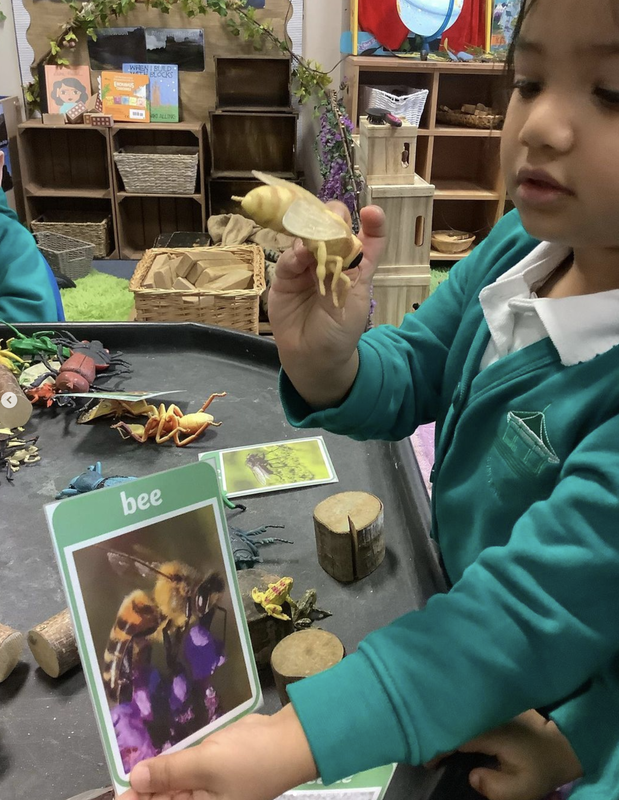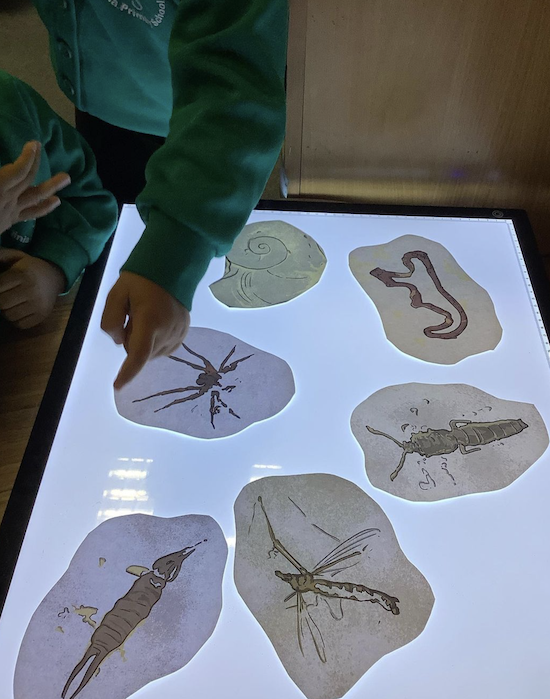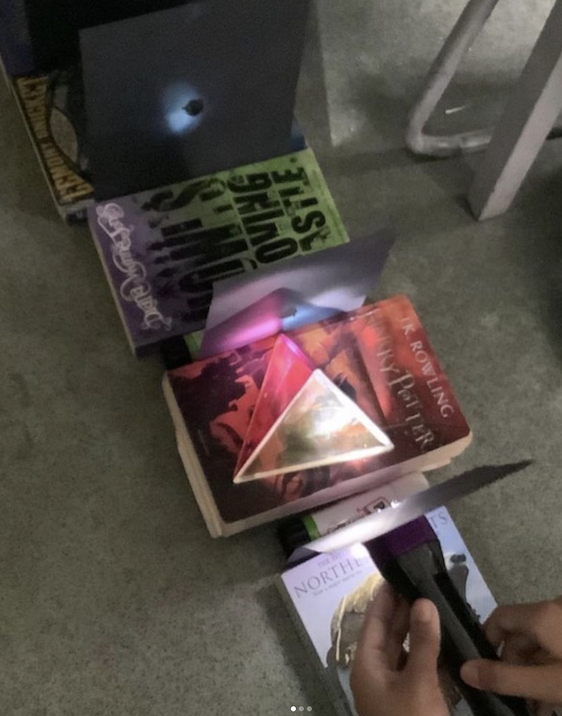Science
VisionWe want our children to explore the world around them with curiosity and excitement, asking questions and making predictions about how things work and why things happen. We want to ensure that they understand the importance of the natural and physical world and develop a respect for all living things.
We want our children to understand the key scientific concepts, facts and processes appropriate for their stage of learning, and be able to build on this knowledge through practical enquiry and scientific investigation. We want them to be able to analyse and explain their findings using scientific language and vocabulary with confidence. We also want them to appreciate the role that science has played in shaping the way we live today, and the valuable contributions made by a diverse range of people, cultures and communities. To ensure this vision is met, we aim to deliver a science curriculum that:
|
Characteristics of good science teachingGood science teaching is varied, with teaching strategies, planned outcomes and delivery depending on what the children are learning.
Teaching strategies might include:
Equal Opportunities and InclusionWe ensure that all pupils have access to the science curriculum by using a range of strategies and approaches:
|
Teaching and Learning
National Curriculum
We follow the National Curriculum for Science 2014 and ensure that all statutory requirements are met at each Phase/Key Stage and in each year group.
Curriculum Overview
The science objectives laid out in the statutory National Curriculum have been mapped across each year group to ensure progression within the different scientific knowledge strands
Curriculum Coverage
Science is a core subject alongside English and Maths, and we feel it is important to make sure that there is enough teaching and learning time set aside to cover the Science curriculum in depth. To this end we have allocated one morning session each week either before or after morning break.
Scheme of Work
We use the ASE PLAN Knowledge Grids to focus on the specific knowledge and skills that need to be learned in each Science Unit. This ensures that children are taught the correct science content at the right stage of their school journey.
Each Science topic is developed as a series of bespoke half-termly or termly units by the Science lead.
Learning objectives, resources, vocabulary and key questions are identified for each lesson and appropriate resources are either created from scratch or selected from several reliable third party sources, including LGfL Switched on Science, Hamilton Science, CGP+ Scholastic and Twinkl.
The plans provide learning intentions both for working scientifically skills and science knowledge. This ensures that pupils are using appropriate scientific enquiry skills to consolidate their understanding of the science content and are covering all the different aspects of working scientifically at this level.
We follow the National Curriculum for Science 2014 and ensure that all statutory requirements are met at each Phase/Key Stage and in each year group.
Curriculum Overview
The science objectives laid out in the statutory National Curriculum have been mapped across each year group to ensure progression within the different scientific knowledge strands
Curriculum Coverage
Science is a core subject alongside English and Maths, and we feel it is important to make sure that there is enough teaching and learning time set aside to cover the Science curriculum in depth. To this end we have allocated one morning session each week either before or after morning break.
Scheme of Work
We use the ASE PLAN Knowledge Grids to focus on the specific knowledge and skills that need to be learned in each Science Unit. This ensures that children are taught the correct science content at the right stage of their school journey.
Each Science topic is developed as a series of bespoke half-termly or termly units by the Science lead.
Learning objectives, resources, vocabulary and key questions are identified for each lesson and appropriate resources are either created from scratch or selected from several reliable third party sources, including LGfL Switched on Science, Hamilton Science, CGP+ Scholastic and Twinkl.
The plans provide learning intentions both for working scientifically skills and science knowledge. This ensures that pupils are using appropriate scientific enquiry skills to consolidate their understanding of the science content and are covering all the different aspects of working scientifically at this level.
Cross-curricular links
|
Links with English
There is always a focus on key vocabulary and scientific language, particularly when starting a new topic, and children are encouraged to learn and remember these words Scientific writing will include description, explanation, information reports (including comparisons) and discussion. These types of writing are scaffolded using a range of writing frames, template and models until children are confident in using them independently. Links with Maths There are rich opportunities to link maths with science, particularly in the areas of data handling/statistics and measurement. Teachers plan for these links, ensuring that children are secure in the mathematical concepts and skills before using them in a scientific context Use of ICT ICT can be an invaluable tool for scientists, and there are many useful resources that will add a new dimension to many areas of science. These include:
Science Marking and AssessmentMarking
We follow the general school marking policy for science
|



